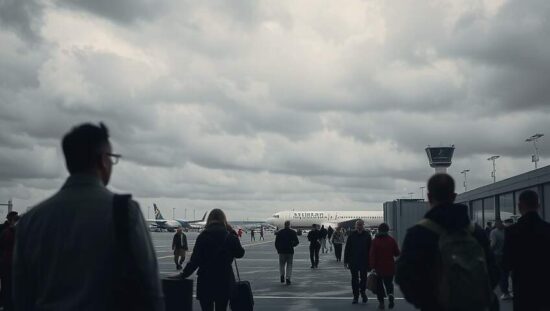The escalating frequency of drone incidents at German airports is prompting a stark warning from the industry, highlighting a critical gap in national security protocols and placing the onus for response squarely on law enforcement agencies. Ralph Beisel, CEO of the Association of German Airports (ADV), has voiced urgent concerns, describing drones as a “significant threat” to the safety and operational stability of air travel and public security.
Beisel’s call for a dedicated national drone incident command center underscores the complexity of the situation. He argues that proactive identification, risk assessment and standardized response strategies are paramount. Current practices are demonstrably inadequate, as evidenced by the 144 drone-related disruptions already recorded at German airports by the end of August, a figure rapidly raising anxiety amongst aviation professionals.
The crux of the matter lies in the current distribution of responsibility. Beisel explicitly states that airports lack the authority or resources to actively defend against drone incursions, relegating this critical function to the federal and state police forces. This clarification is particularly important as speculation regarding airport-led countermeasures has grown, risks further complicating the issue. Allowing airports to deploy their own defense systems could introduce inconsistencies and potential legal challenges.
Critics are now questioning the government’s responsiveness to this evolving hybrid security threat. The reliance on police intervention raises concerns about response times and the overall agility in dealing with increasingly sophisticated drone operations. Further examination is needed to assess if existing police infrastructure and training are sufficient to effectively manage the expanding scope of these incidents. The current dependence on law enforcement also sparks debate about the potential for bureaucratic delays and a lack of coordinated action across different jurisdictions.
Ultimately, Beisel’s appeal highlights a fundamental political challenge: how to balance aviation safety with legal boundaries and to ensure a rapid, unified response to a threat that blurs the lines between criminal activity and potential acts of deliberate disruption. It remains to be seen whether the government will heed this warning and establish a dedicated command center, but the growing number of incidents suggests decisive action is increasingly vital.





